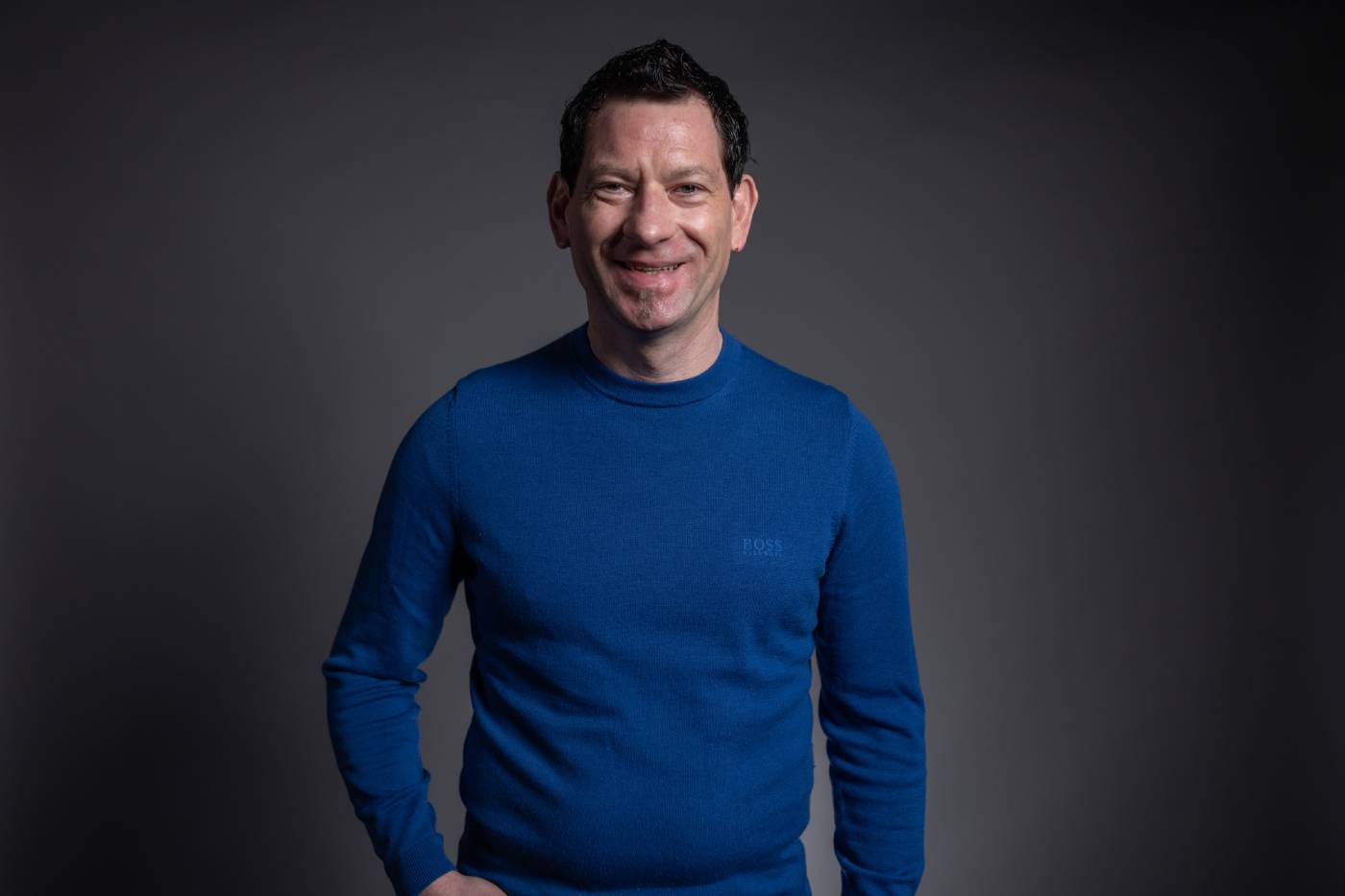
9.7 tonnes of carbon dioxide. This is the average CO2 footprint of a person in Germany per year, according to the Federal Environment Agency. Roberto's consumption is about a third less. He cycles a lot, uses an electric car, has insulated his house, converted to a heat pump, is equipping the roof with photovoltaics, and tries to avoid air travel as much as possible. And even his beloved hobby, motorcycling, will soon be electric. He is fitting the bike with an electric motor himself.
An app helps Roberto to document all this and present it in figures: he currently produces 6.6 tonnes of CO2 per year. It's good, but there is still room for improvement, he says. "It's still hard for me to completely give up meat at the moment," he admits.
Not only in his private life, but also professionally, everything revolves around the topic of sustainability. Since the beginning of 2022, he has been Vice President of the Business Unit for Energy Systems and Drivetrain. The newly created business unit at the EDAG Group bundles competences around topics such as batteries, e-motors, hydrogen, sustainable materials and recycling. "I like progress and I like sustainability. And I am convinced that the two belong together ", says Roberto.
Roberto studied environmental engineering. When he started more than 20 years ago, it was still considered a niche subject, he says. After university, he ended up at the car manufacturer Opel. Even though the realization that the days of the combustion engine are numbered has only been gingerly gaining ground in recent years, back then he was already involved with innovative topics, such as fuel cell development. "I know both worlds in this industry, the old and the new," says Roberto. He therefore describes himself as a bridge builder.
"What we are doing is good, some are just not ready for it. That doesn't mean they don't know what's right," he says about the change in the automotive industry. And from his point of view, this is not just about saying goodbye to the combustion engine. It's also about individual transport. "It's still a long way from being a car maker to becoming a mobility provider, and many people are reluctant to do that. Hardware competence will no longer be the decisive factor, but software and services," Roberto summarizes his forecast.
Before joining the EDAG Group in 2020, Roberto worked for a start-up to develop a vehicle that is completely equipped with solar cells and supports operation with additional energy. A time in which he was able to gain a lot of important experience - and not only when it comes to technology. "Start-ups have many good ideas, but often fail in the implementation." The advantage of a company size like the EDAG Group: you can develop and be creative, similar to a start-up, but at the same time the company is big enough and has the resources that ideas can also be implemented. At the EDAG Group, he especially appreciates the working atmosphere. "The way we deal with each other is always fair, respectful and honest. That means a lot to me," says the engineer with additional training in management. His team is spread all over Germany, and he can do most of his work from home.
The new Energy Systems and Drivetrain Business Unit currently has about 135 colleagues. Together they are initiating many new topics. One team, for example, is researching the inductive, i.e. wireless, charging of e-taxis. Another project is dedicated to the recycling of discarded vehicle batteries. As a rule, batteries of electric cars are replaced after about 160,000 kilometres or when they fall below a capacity of 80 percent. Roberto and his team are investigating how they can breathe a second life into the batteries in mobile charging applications. And that solves two questions at once: the one about recycling valuable raw materials and the one about poor charging infrastructure for e-mobility.
Recycling, Second Life, circular flow - these are the terms Roberto keeps coming back to in conversation. From his point of view, they are not a contradiction to economic efficiency. On the contrary: "This is the only way it will work in the future," he says. That is why Roberto also believes that sustainability and public welfare aspects should be included in the evaluation of companies.
When Roberto became a father for the first time a few months ago, it gave his motivation another boost. "With such a small miracle, it all takes on a whole new gravity," he says. He wants to do everything to ensure that his daughter can still live on this earth in 2100.